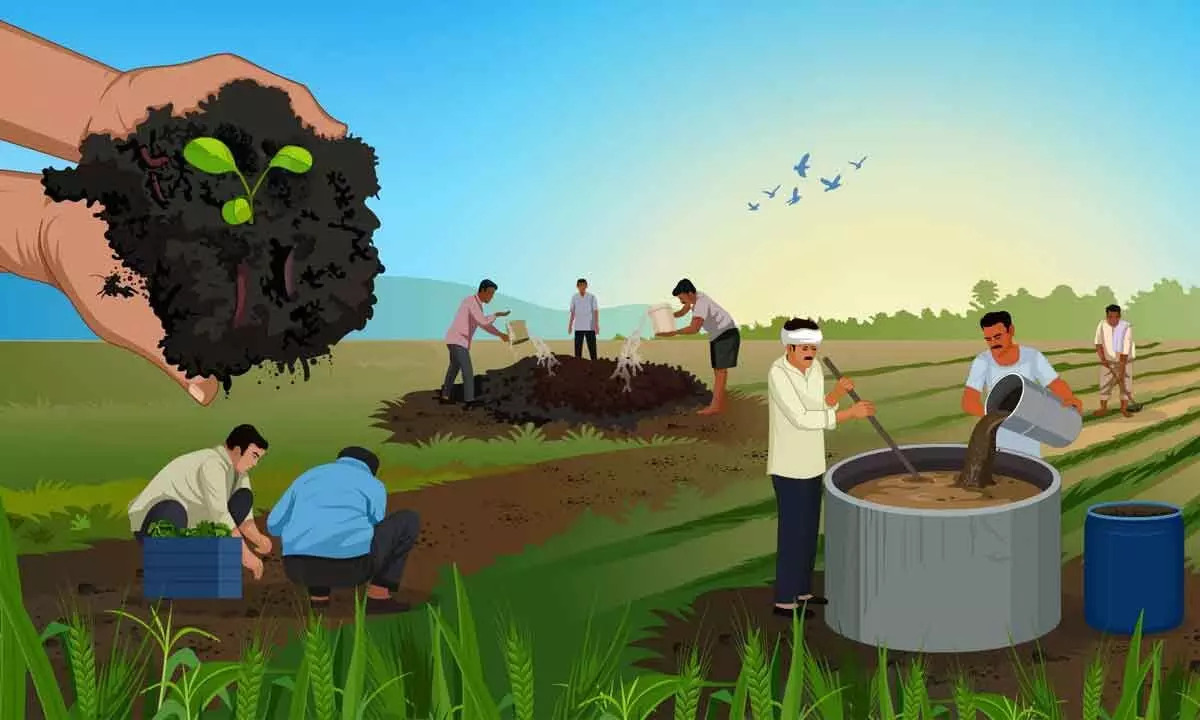Now, ICAR aiming for toxic-free food crops
Frames a roadmap including stopping usage of pesticides and insecticides on crops during maturation
image for illustrative purpose

New Delhi: The Indian Council of Agriculture Research (ICAR) has chalked out a roadmap for chemical residue-free crops. The ICAR has decided that the practice of spraying pesticides and insecticides on crops from 15 days to harvesting must be stopped forthwith, official sources told Bizz Buzz. The objective is to check the entry of toxicity into the food chain.
The ICAR governing body has decided that ways have to be found to stop poison in food. It is of the opinion that the cultivation of crops carrying chemical residue must be aggressively discouraged, the sources said, adding that this is doable because spraying of crops at the stage of maturation is not required.
A big challenge is to sensitize farmers regarding the excessive use of chemical sprays with crops. The early stage spraying with chemicals doesn’t come as residue in grains. Therefore, focus is on stopping it during the period 15 days prior to harvesting when grains have already matured.
There are already guidelines for spraying pesticides and insecticides; they specify the dos and don’ts. Farmers are recommended the dose and the dilution. Overdosing must be avoided. Spray operations should be conducted on cool and calm days. Sunny days are preferred. Hot sunny days must be avoided. The recommended sprayer should be used. Spray operations should be carried out in the wind direction. Spraying against wind direction is strictly prohibited. Also, spraying should not be done just before and immediately after rains.
There are also post-spray guidelines. Leftover spray solutions should be disposed of at safer places, like a barren isolated area. It should not be drained in or near ponds, water lines, etc.
Further, empty containers of pesticides should not be re-used for storing other articles. In December 2021, the government had also announced the standard operating procedures for pesticide application by drones. All these efforts, the sources said, are aimed at not just checking poison enter the food chain, but also keeping the environment safe.

